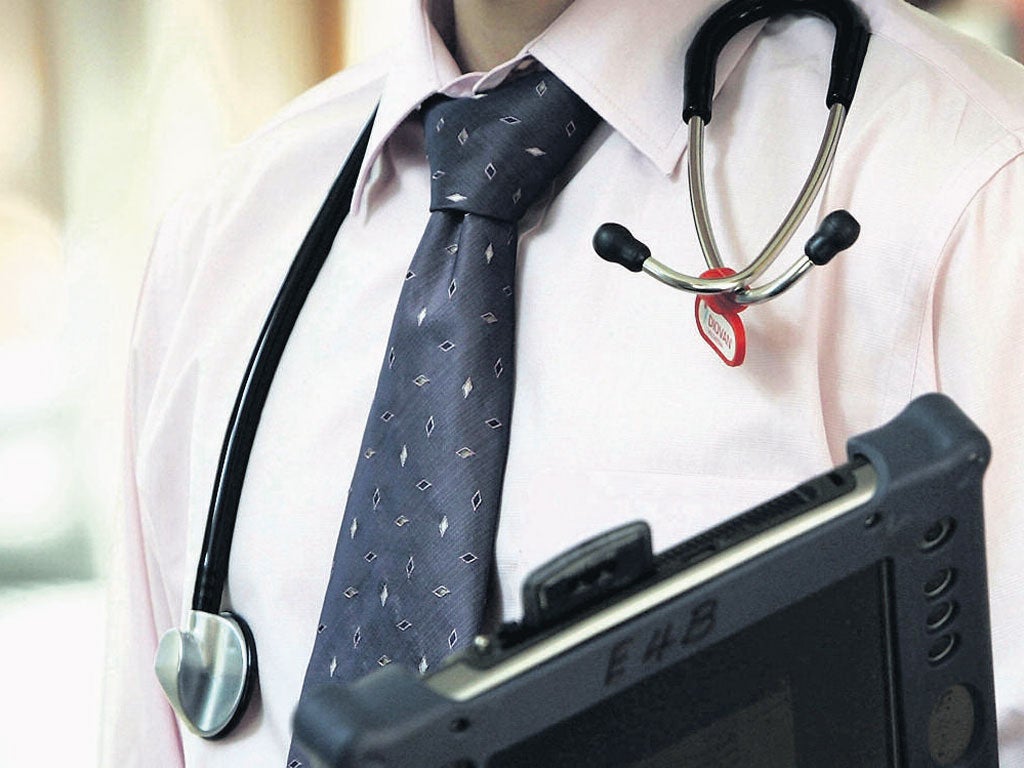The hidden cost of paying for GP appointments
Attempts to monetise the NHS have wilted in the past. It won't work here

It sounds simple. Doctors want to deter time-wasters and boost the NHS's coffers by charging for appointments. It would reduce demand, free up consultations for the genuinely sick and contribute to the £30 billion savings target over the next decade.
Would it work? No. The 51 per cent who backed charges for patients in the poll by the doctors trade magazine Pulse should be seen for what it is - a knee-jerk reaction to current frustrations rather than a considered response to the latest health service crisis.
GPs are feeling over-burdened and under valued, and are still licking their wounds after the recent mauling by Health Secretary Jeremy Hunt who blamed inadequate out of hours cover for the crisis in A&E.
The British Medical Association first proposed such a charge in the late 1970s - but it was summarily dropped after it was pointed out that it undermined the founding principle of an NHS free at the point of need.
It has been revived periodically since, along with its soul-mate - charging for non-essential “lifestyle” treatments such as IVF, varicose veins and terminations - but has always wilted under closer examination.
Like all initiatives, charging has a downside. First, it would cost to collect it - so the fee would have to be set toward the upper end of the £5-£25 proposed. Second, it might well deter some patients with trivial ailments if popping down to the surgery was going to cost them the price of a night out. But it might also deter those, usually the poor and vulnerable, who put off getting the lump in their breast or scrotum checked - until it is too late.
Trying to define “core” services, which should continue to be provided free on the NHS, whilst charging for the “non-essential” remainder - as the BMA also tried to do in the 1990s (and called for again at its annual conference last month) - is equally fraught. What is non-essential? Cosmetic treatment to plump up breasts or lips we might all agree on - but surgery to deal with an unsightly birthmark?
Drawing the boundaries is tricky. The BMA found that once agreement had been reached, the basket of treatments in the non-essential category had shrunk to insignificance - accounting for a tiny proportion of total NHS spending. The idea was dropped.
This idea should be dropped too. General practitioners are gate-keepers - sifting the sick who need treatment from the anxious who need reassurance. If you narrow the gate, some who are genuinely sick will never make it through.
Join our commenting forum
Join thought-provoking conversations, follow other Independent readers and see their replies
Comments
Bookmark popover
Removed from bookmarks